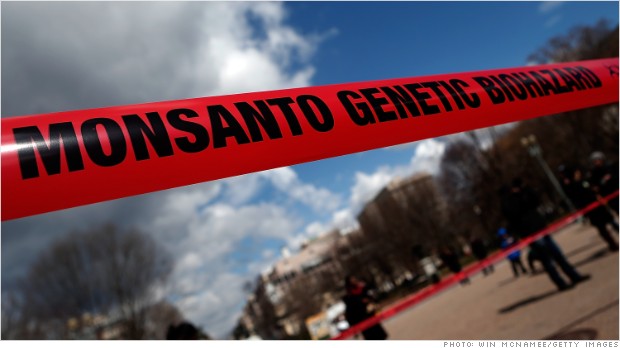from Fortune Magazine,
6/10/13:
 May was March-on-Monsanto month. An array of celebrities, ranging from Danny DeVito to Dave Matthews, called for protests against the St. Louis-based agriculture giant -- not for anything like the killer Vietnam-era herbicide Agent Orange it once produced, but for food technology that is saving millions of lives in poverty-stricken countries.
May was March-on-Monsanto month. An array of celebrities, ranging from Danny DeVito to Dave Matthews, called for protests against the St. Louis-based agriculture giant -- not for anything like the killer Vietnam-era herbicide Agent Orange it once produced, but for food technology that is saving millions of lives in poverty-stricken countries.
It's fast becoming fashionable inside America's hard left to loudly condemn genetically modified (GM) crops -- and those evil corporations that produce them. The rebellion that first flourished on European soil -- despite a dearth of evidence showing GM's dangers -- has been imported to U.S. shores by groups like Greenpeace. California's ballot initiative to require labeling failed last November, but similar proposals are cropping up in other states and Congress. Whole Foods has opted to protect its hard-core foodie flank with a five-year plan to label products containing GM ingredients (which don't qualify as "organic").
Activist websites brim with unfounded scare tactics, linking GM foods to "organ damage, insulin and immunity dysfunction and death".
The the world's largest scientific society, the American Association for the Advancement of Science, says, " GM crops pose no greater risk than the same foods modified by conventional plant breeding techniques". Even the European Union came up with the same conclusion.
U.S.Aid notes that they operate under a "different calculus" from the anti-GM crowd. "We are trying to end hunger and extreme poverty". Its not just "different calculus", it is the right one.
Read More (subscription required):















